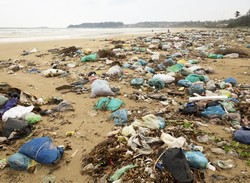Toward litter-free oceans
A 2013 survey, conducted by Eurobarometer, found that more than 90 % of respondents were against litter reaching our oceans. They also expected more initiatives to limit waste and increase recycling. The EU-funded CLEANSEA(opens in new window) (Towards a clean, litter-free European marine environment through scientific evidence, innovative tools and good governance) project addressed many of these concerns as part of the Marine Strategy Framework Directive (MFSD). CLEANSEA researchers analysed the biological impact and technical aspects of marine monitoring. Based on this information, a novel microplastic sampler was designed and tested by sampling marine litter on the seabed. These samples were used as input for plastic fragmentation and hydrodynamic modelling studies. Another focus of the CLEANSEA project was to inform marine legislation and policies aimed at reducing waste. Researchers assessed the drivers for marine litter and developed an overview of the barriers to good environmental status. They also investigated the socioeconomic impact of reducing marine litter, and are developing a database of the economic value of marine ecosystem services. CLEANSEA aimed to curb waste by creating more sustainable production and consumption patterns, and improving recycling and waste management. This will help solve the oceans' litter problem, which in turn contributes to a healthier environment.







